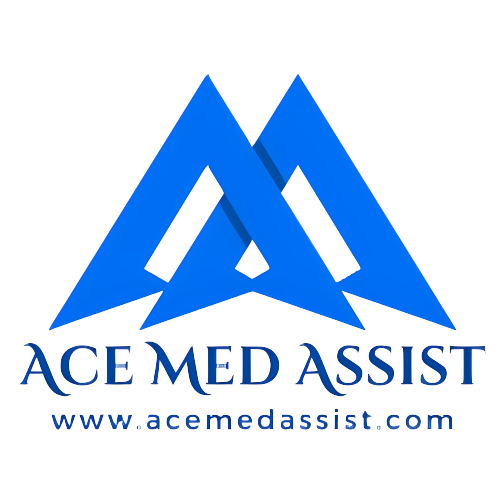In the ever-evolving healthcare landscape, maintaining high standards of care and operational excellence is crucial. One way healthcare organizations achieve this is through medical accreditation services. These services not only demonstrate a commitment to quality but also ensure that healthcare providers meet regulatory standards and patient expectations. In this blog, we will explore what medical accreditation services are, their importance, and how they benefit healthcare providers, including their connection to medical billing companies and medical billing agencies.
What Are Medical Accreditation Services?
Medical accreditation services are formal, third-party evaluations of healthcare organizations to ensure they meet specific performance standards. Accreditation typically covers various aspects of healthcare, including patient care, facility management, staff qualifications, and compliance with legal and regulatory requirements.
Healthcare organizations seek accreditation from recognized accrediting bodies to enhance their credibility, improve patient care, and reduce risks associated with healthcare delivery. Accreditation is a continuous process that involves regular evaluations and assessments to ensure that the healthcare provider remains compliant with evolving standards.
The Importance of Medical Accreditation Services

Accreditation is more than just a certificate on the wall. It signifies a commitment to continuous improvement and accountability. Here are some key reasons why medical accreditation services are essential:
Enhancing Patient Trust
Accreditation sends a strong signal to patients that the healthcare provider meets high standards of care and safety. It reassures patients that their health is in capable hands, which can enhance trust and improve patient retention. Accreditation standards often emphasize patient-centered care, which directly impacts patient satisfaction.
Compliance with Regulations
Healthcare providers must adhere to various legal and regulatory requirements. Accredited organizations are more likely to be compliant with these regulations because they are subject to regular audits and assessments. This ensures that they avoid penalties and legal issues, which can negatively impact their reputation and operations.
Improving Healthcare Quality
Accreditation services push healthcare providers to adopt best practices and continuously improve the quality of care they provide. This results in better patient outcomes, more efficient operations, and reduced errors. It fosters a culture of excellence that benefits both patients and staff.
Types of Medical Accreditation Services

There are various types of medical accreditation services, each focusing on different aspects of healthcare operations. Some of the most common types include:
Hospital Accreditation
This type of accreditation evaluates a hospital’s overall quality of care, including patient safety, clinical outcomes, and facility management. Accredited hospitals must demonstrate that they meet stringent performance standards and maintain a high level of patient care.
Clinical Laboratory Accreditation
Laboratories play a critical role in patient diagnosis and treatment. Clinical laboratory accreditation ensures that labs follow standard operating procedures, maintain accurate results, and comply with legal and ethical standards.
Specialty-Specific Accreditation
Certain medical specialties, such as oncology or cardiology, may require specialized accreditation to ensure that providers have the expertise and resources necessary to treat specific conditions. Specialty accreditation demonstrates a higher level of proficiency in a particular field of medicine.
Home Healthcare Accreditation
With the rise of home-based healthcare services, accrediting bodies have developed standards to ensure that home healthcare providers meet the same quality and safety requirements as traditional healthcare facilities. This accreditation is vital as more patients seek care outside of the traditional hospital setting.
How Medical Accreditation Services Impact Healthcare Providers?

Accreditation can have a significant impact on healthcare providers, including both operational and financial benefits.
Boosting Operational Efficiency
Accreditation services often identify areas for improvement, leading to more efficient processes within healthcare organizations. This may include streamlining patient flow, enhancing staff training, and improving administrative procedures such as billing and record-keeping.
Medical billing companies in US play a critical role in this context. Efficient billing practices, often improved through accreditation, ensure that healthcare providers are reimbursed correctly and on time. Accreditation in areas such as medical billing ensures that providers comply with all relevant regulations, reducing the risk of claim denials and delays.
Reducing Risk and Liability
Healthcare providers face significant risks, ranging from medical malpractice claims to compliance issues. Accreditation services help reduce these risks by ensuring that providers meet strict quality and safety standards. This can lead to fewer legal challenges and financial penalties.
Enhancing Marketability
Accredited healthcare providers often enjoy a competitive edge in the market. Accreditation serves as a mark of quality, helping providers attract more patients and secure partnerships with insurers and other healthcare stakeholders. Medical billing agencies that work with accredited providers may also benefit from this enhanced credibility, as their clients are seen as reputable and compliant.
The Role of Medical Billing Companies in Accreditation

Medical billing companies and agencies play an essential role in supporting healthcare providers through the accreditation process. These organizations ensure that the financial aspects of healthcare operations meet the required standards, allowing healthcare providers to focus on patient care. Here’s how medical billing companies contribute to accreditation:
Ensuring Compliance with Billing Regulations
Accreditation standards often require that healthcare providers comply with specific billing practices, including accurate coding, timely submissions, and adherence to legal and regulatory requirements. Medical billing companies help ensure compliance, reducing the risk of audits, fines, and claim rejections.
Streamlining Revenue Cycle Management
Accredited healthcare providers must demonstrate financial stability and efficient revenue cycle management. Medical billing agencies can optimize this process by automating billing procedures, improving cash flow, and reducing administrative burdens. This allows healthcare providers to focus on improving patient care, while the billing experts handle the financial aspects.
Supporting Audits and Assessments
Accreditation often involves regular audits to ensure compliance with financial and operational standards. Medical billing companies assist healthcare providers during these audits by providing accurate billing records, ensuring that all claims and reimbursements are properly documented. This level of transparency is critical to maintaining accreditation.
Key Accrediting Bodies for Healthcare Providers

Several organizations provide accreditation services for healthcare providers. Each body sets its own standards and evaluation processes. Some of the most recognized accrediting bodies include:
The Joint Commission
The Joint Commission is one of the most well-known accrediting organizations in the U.S. It accredits a wide range of healthcare providers, including hospitals, labs, and home healthcare agencies. Their standards focus on patient care, safety, and operational efficiency.
The Accreditation Association for Ambulatory Health Care (AAAHC)
AAAHC provides accreditation to ambulatory care providers, including outpatient centers and specialty clinics. Their accreditation emphasizes patient safety, quality improvement, and compliance with federal regulations.
The College of American Pathologists (CAP)
CAP accredits clinical laboratories, ensuring they meet high standards for accuracy, reliability, and ethical conduct. This accreditation is critical for labs seeking to maintain credibility and compliance in their operations.
Conclusion
Medical accreditation services are essential for healthcare providers striving to improve the quality of care, ensure compliance, and enhance patient trust. By seeking accreditation, healthcare organizations demonstrate their commitment to high standards, patient safety, and continuous improvement. The role of medical billing companies and agencies cannot be overlooked in this process, as they support compliance and operational efficiency, ultimately contributing to the successful accreditation of healthcare providers.
Key Points to Remember:
- Enhancing patient trust – Accreditation shows patients that your organization meets high-quality care standards.
- Compliance with regulations – Accredited providers are more likely to be compliant with legal and regulatory requirements.
- Boosting operational efficiency – Accreditation identifies areas for improvement, leading to streamlined processes.
- Supporting revenue cycle management – Medical billing companies play a key role in ensuring financial compliance and operational efficiency.
- Collaborating with accrediting bodies – Recognized accrediting bodies, such as The Joint Commission and CAP, provide essential oversight for healthcare providers.
By pursuing medical accreditation services, healthcare organizations can improve their operations, build trust with patients, and ensure long-term success.









